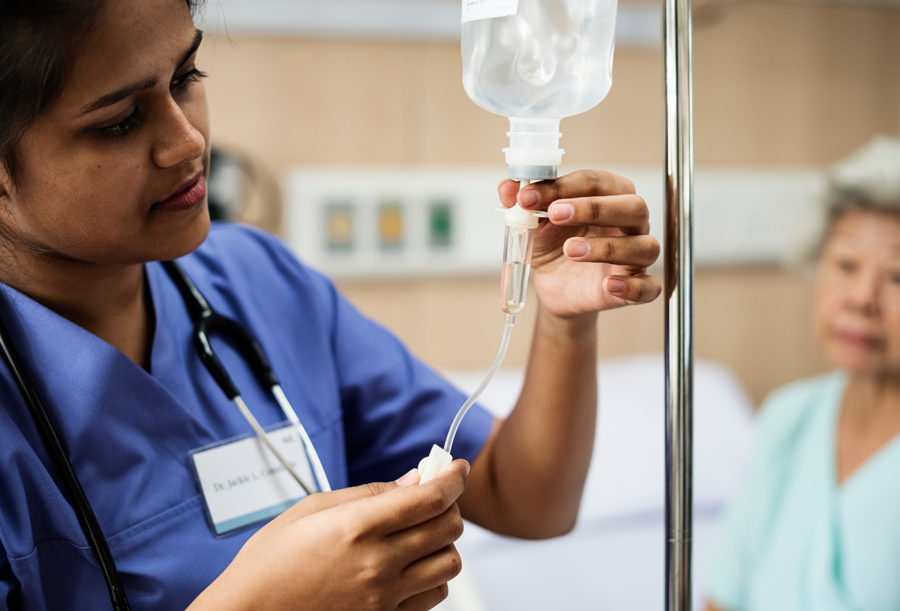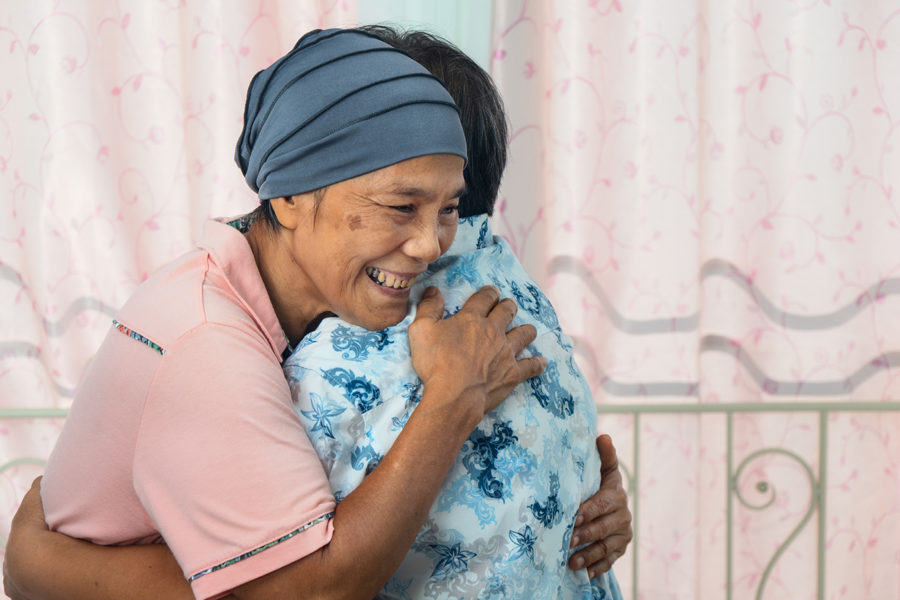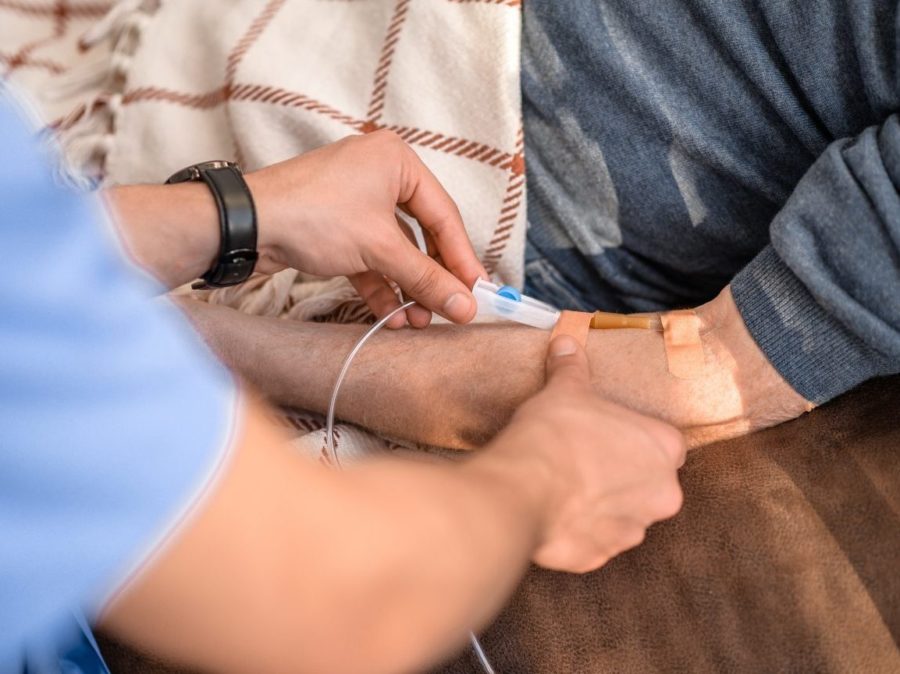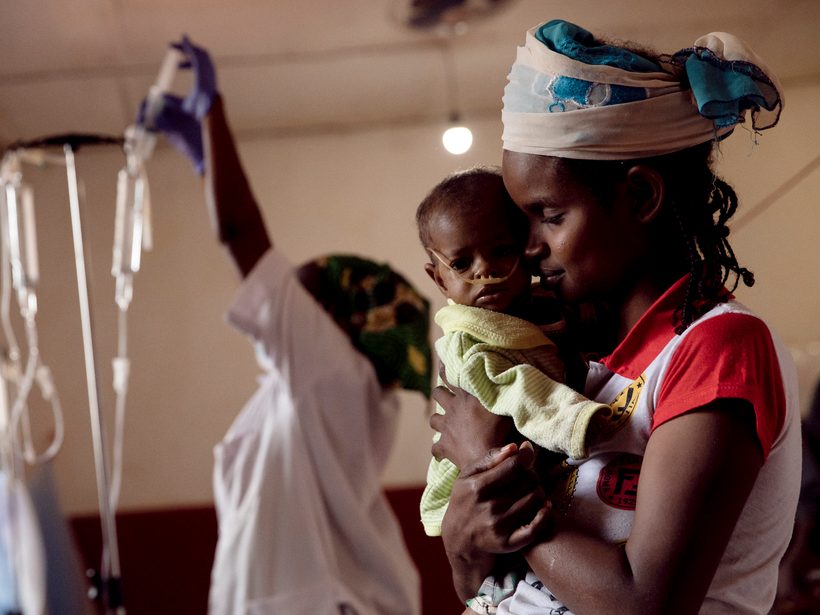Serious bacterial
infections & sepsis
Serious bacterial infections are among the major causes of death for people in hospitals and other healthcare settings. Currently, the most difficult-to-treat hospital infections are caused by Gram-negative bacteria, which have become resistant to most antibiotic treatments. In severe cases, these infections cause sepsis, which is responsible for roughly 1 in 5 deaths worldwide. GARDP aims to provide new treatments for serious bacterial infections that lead to sepsis in children and adults.


Programme goals

Co-develop, support regulatory approval, and make accessible a new antibiotic treatment for serious bacterial infections in children and adults

Make accessible a recently approved antibiotic to treat serious bacterial infections

Expand portfolio to develop new treatment(s) for target pathogens, in line with 2024-2028 GARDP Strategy
“Until now carbapenem antibiotics have been the antibiotic class of last resort to treat hospitalized patients with sepsis. But resistance to carbapenems is growing fast around the world, and we have very few alternative treatments. We can’t afford inaction – we must invest right now in new treatments. If we don’t, the number of lives lost to antibiotic-resistant infections will increase dramatically.”
– François Franceschi, Associate Director Serious Bacterial Infections Portfolio

Current projects
Novel broad-spectrum treatment development project
Novel broad-spectrum treatment development project
In alignment with the 2024-2028 GARDP Strategy, GARDP signed a collaboration agreement with Bugworks Research Inc (“Bugworks”) to provide technical and financial support for the clinical and pharmaceutical development of investigational compound BWC0977 (intravenous and oral formulation). This compound has in vitro activity against a broad spectrum of pathogens that lead to serious hospital-acquired infections like pneumonia, bloodstream infections and complicated urinary tract infections. Among these pathogens are WHO critical priority pathogens, carbapenem-resistant Acinetobacter baumannii and Klebsiella pneumoniae, for which there are few treatment options.
GARDP’s support of this project is tied to the successful completion of key R&D milestones that align with GARDP’s public health objectives. GARDP will initially provide critical support for BWC0977’s pharmaceutical development, including product formulation. Later investments will support clinical development and chemistry, manufacturing and controls activities to ensure the final product is suitable for use in diverse countries and contexts, including low-resource settings.
Cefiderocol access project
GARDP is collaborating with Shionogi and CHAI on an ambitious project to provide access to cefiderocol, an antibiotic with activity against a number of drug-resistant bacteria on the WHO priority pathogen list, including Enterobacterales. Cefiderocol has been approved by the US FDA and by the European Medicines Agency, and it is included on the WHO Model List of Essential Medicines. Until now, this antibiotic has been available in only a few high-income countries, and it has not been available at all in low- and middle-income countries (LMICs).
Under the license and technology transfer agreement with Shionogi, GARDP will be able to manufacture and commercialize cefiderocol through sub-licensees in almost 70% of countries worldwide (135 countries), most of which tend to have delayed access (if any) to novel antibiotics.
In September 2023, GARDP and Orchid Pharma Ltd. signed a sublicense agreement to manufacture cefiderocol. The agreement has important access, environmental and stewardship provisions, including cost-plus pricing, with a commitment to lower the costs based on volumes to help keep the product affordable for patients and health systems in low-resource settings.
Click here to read about this project in the context of access to antibiotics.






Key milestones
- 2022: SIGNED a license agreement to expand access to a recently approved antibiotic (cefiderocol)
- 2023: SIGNED manufacturing sublicense agreement with Orchid Pharma for the antibiotic cefiderocol
- 2024: SIGNED collaboration agreement with Bugworks to develop intravenous form of the investigational compound (BWC0977)
- 2024: COMPLETED observational study to understand treatments and outcomes of patients with serious bacterial infections (results forthcoming)
- 2025: SIGNED collaboration agreement with Bugworks to develop oral form of the investigational compound (BWC0977)





About serious bacterial infections
About serious bacterial infections
Bacteria have built-in abilities to develop resistance, for example by degrading and/or deactivating antibiotics, or by blocking penetration of the antibiotic. Resistant bacteria can then pass on their genetic material to their progeny or to neighbouring bacteria, resulting in the spread of antibiotic resistance. A striking example is NDM-1, an enzyme that allows bacteria to degrade even some of the newest antibiotics. Bacteria producing NDM-1 were first discovered in 2006; since then, they have been found in 80+ countries and have caused outbreaks of drug-resistant infections in hospitals around the world.
Although anyone, anywhere can be infected by these highly resistant bacteria, people in hospitals are especially susceptible. These infections occur when resistant bacteria get into the body through wounds, surgery sites, ventilators, and catheters. They cause a range of problems, including pneumonia as well as infections in the urinary tract, abdomen, soft tissue and bloodstream, which can lead to sepsis and cause significant loss of function and eventually death. As antibiotic resistance spreads, patients undergoing common surgeries (like hip replacements) or with suppressed immune systems (for example, cancer patients) are at greater risk for these serious bacterial infections. Having effective antibiotics to treat such infections are foundational to the practice of modern medicine.
Learn more
Learn more
- Serious bacterial infections factsheet
- Collaboration and license agreement overview between GARDP and Bugworks Research Inc.
- Licence agreement overview between GARDP and Shionogi & Co., Ltd.